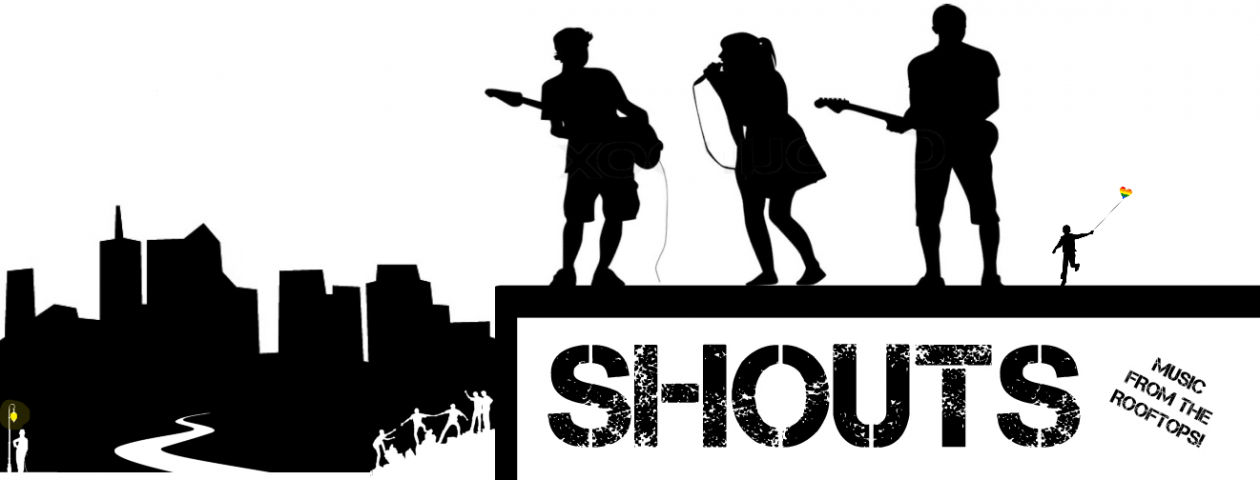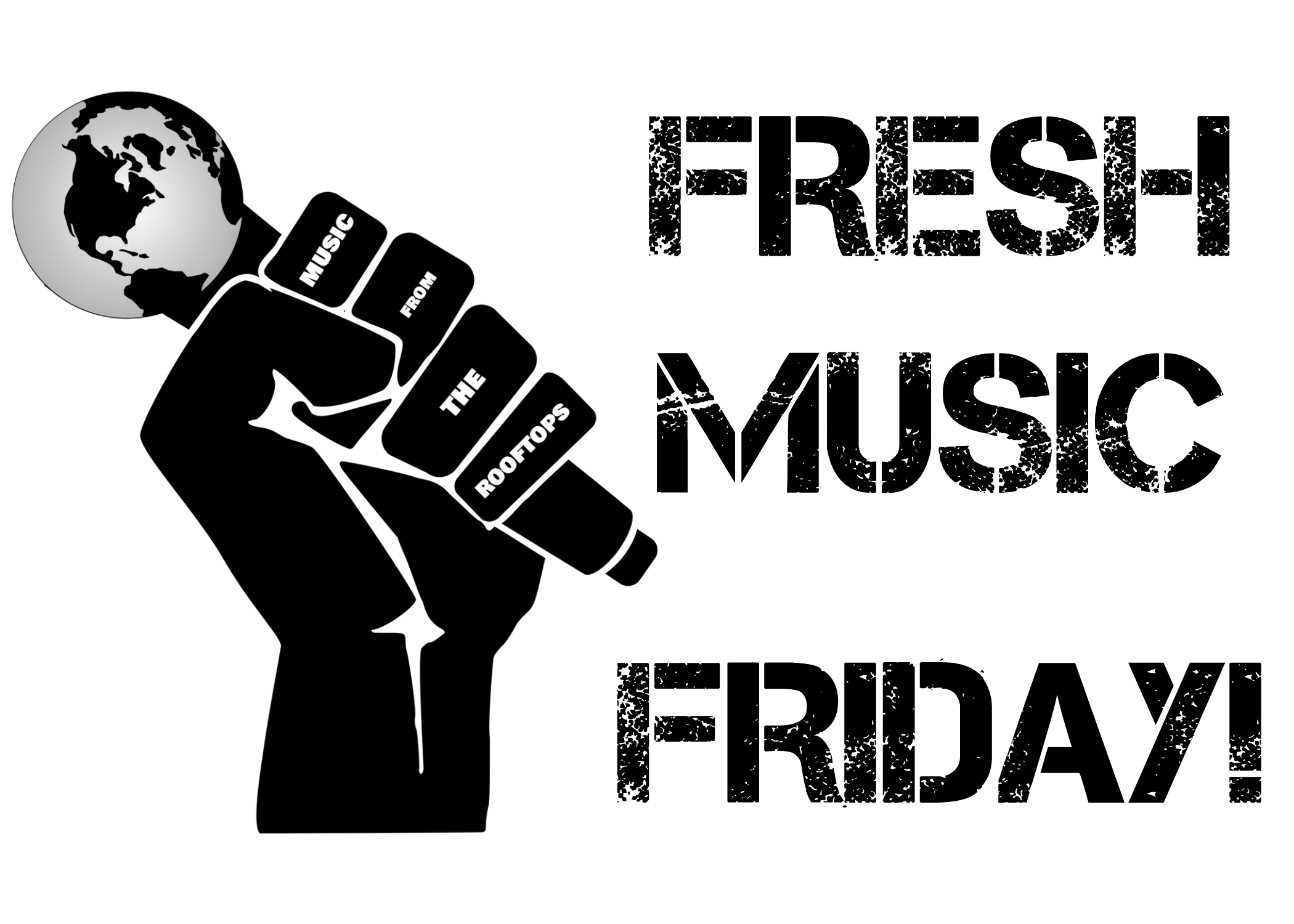Last August, a debut album was released called Songs For Rojava. The songs are all dedicated to “freedom fighters around the world” and a special focus is directed towards the Rojava revolution. The musician and activist behind the album is a self taught singer-songwriter, writer, activist and, more specifically, an anarcho-communist. All this led me to believe he’d be a perfect fit for a Shouts interview. Hit the play button above for a protest music soundtrack to the interview!
Who is Lee Brickley?
“I’ve been a freelance writer for the last five years, but my real passion has always been songwriting. After teaching myself to play the guitar at age 12, I started writing my own music almost immediately. Since that time I’ve written thousands of songs on many different subjects, but in recent years my music has taken a political slant, and that has thankfully put me in a position where I now have somewhat of a fan-base and am able to release my music publicly.
If you’re asking about my political views, I’d call myself an anarcho-communist, in that I believe it is possible for society to organise in variations of a commune-like structure without an authoritarian state at the helm. This is why I find Democratic Confederalism (the system currently in full swing in Rojava) to be of particular interest, and thus, why I chose to release my latest album that attempts to educate listeners on the Kurdish struggle and the Rojava feminist revolution.”
When did realise that you wanted to send out a message through music?
“I think I realised it was important to write songs aimed at educating, amusing, and encouraging social change when I was very young. Even as a 12 year old with my first £50 guitar in hand, I attempted to replicate the greats like Bob Dylan and Phil Ochs. I might not have quite understood the significance of their lyrics back then, but their songs spoke to me more than any others.
It has only been during the last couple of years that my songs have begun to get attention, and I believe that is because conditions have deteriorated across the world, and the international working class is closer to revolution than at any point during my lifetime. I write songs about worker’s revolts, I write anti-monarchist music, and I despise the class system. The number of people who agree with me seems to increase every day, and so, as a songwriter, my natural instinct is to create a soundtrack for the revolution.”

Has your music always been political?
“My music hasn’t always been political, and I have hundreds of songs about other subjects. I just think the current political situation globally should encourage all artists to turn their talents towards the issues at hand. We’ve had decades of freedom to dream and create art in all forms on all subjects, but the planet is in a terrible state, psychopaths are in control of nuclear arms, and 99% of people on this Earth are nothing more than slaves. I think it’s time artists and intellectuals did their part, just as the Kurdish, British, and Internationalist volunteers do in Rojava.”
What is your connection to Rojava? How did you learn of it? Why is it important to you?
“As I said, for me, the ideology behind the Rojava revolution is highly appealing. It’s not perfect, and it never will be – nothing is. However, it’s an ideology based on real democracy, freedom, and equality between races, religions, sexes, and minorities. Whatever happens in the future in Rojava, the ideas of Abdullah Ocalan and his ‘Manifesto for a Democratic Civilisation’ writings are some of the most rational, compassionate, and empowering I’ve ever come across.
I want to see an international revolution in which the people of the world remove the current banking system completely, redistribute wealth, eliminate the oil and gas industries in favour of renewable energy sources, remove all monarchies, aristocrats, and those born into positions of power. I want to see a bottom-up structure of organising society where people make the decisions that directly affect themselves, and upper-structures are only there to implement the will of the people. I see this happening in Rojava, and so it’s something I must support. And I encourage all others to do the same.”
How is the music scene where you live, in terms of activism and protest? Do you feel alone in using your voice how you do or do you have comrades around you doing similar things?
“There isn’t much of a music scene for political music where I’m based, and so most of my releases etc happen online. However, I am planning a tour for 2019 which will see me play around the UK, Ireland, and Europe. I should be announcing some of the dates for that tour in a few weeks.”
How do you feel people are receiving protest music these days?
“Due to the state of the world at the moment, and the fact that politicians are clearly only focused on keeping the peace while dictatorial corporations pillage and rape the planet – I think people are now looking to protest music more than at any point since the 1960s. Which is good news for me because it means more and more folks out there are listening to my songs, but I’d imagine those in positions of power are getting rather concerned. And they should be concerned.”

What’s your take on musicianship vs. journalism? Many protest singers used to write about very current topics, like a journalist, and some do still to this day. Do you think the media is not doing its job today?
“Despite the fact that my song called “Ocalan” repeatedly gets removed from Facebook and YouTube even though the lyrics are historically accurate and simply tell the life story of Abdullah Ocalan up until his imprisonment in 1997, I still think I can get away with saying things in songs journalists wouldn’t dare to write in their propaganda mainstream news articles. But even I appear to be treading a thin line. There are more and more people being arrested in the UK for supporting the Kurdish struggle in one way or another all the time. And there have also been some arrests of songwriters for releasing music on other subjects.
So I don’t necessarily blame the journalists for not having the balls to write articles that go against the official propaganda line of the state. They risk being classed as a terrorist and getting arrested just like me. The only difference is I realise that I have nothing to lose but my chains, and they’re wrapped up in their ever-so-important lives.”
What about activism versus art? Should they be mixed? Do you ever get feedback or criticism regarding that?
“There are a lot of people out there who think musicians and songwriters should keep out of politics, but those people shamefully underestimate the power music and lyrics can have over a human being’s perceptions. When the mainstream music industry is filled with songs about sex and getting wasted; what happens? We get a society filled with teenage mothers and drug addicts. People who listened to that music and took inspiration from it long before they were experienced enough to make a rational decision on the matter. Music is incredibly powerful.
If you want to start a revolution, raising an army and asking the IRA for information about their old gun-smuggling routes simply isn’t enough. Not this time anyway. If the people of the UK and other countries around the world are to rid themselves of their authoritarian rulers, they must be united in their efforts. Art and music are essential tools for educating the masses, showing them the reality of their situation, and teaching them how to free themselves.”
Do you partake in activism outside the music?
“Yes. I regularly attend protests for issues I think matter. I also write articles and blog posts, and sometimes I’ve been known to engage in a bit of guerrilla art.”
Who are you musical heroes? What about current protest musicians? Anything you are following or can recommend?
“My musical heroes have to be people like Bob Dylan, Phil Ochs, James Taylor, Neil Young, and Johnny Cash, but there are really too many to mention. As far as current protest singers, I’d like to mention a couple of people that everyone should check out. David Rovics has been writing and releasing protest songs for what seems like forever, and he really is a master in the game. Seriously. There’s also a guy from the UK who’s blowing my mind at the moment called Joe Solo. Check out his song Start a revolution in an empty room.”
What is on the horizon for you?
“I am about to record another eight songs that I will release under the title of “The Working Class Revolution EP” ahead of the tour of the same name I am currently in the process of planning in Europe. I still have lots of room available to book extra shows, and the tour will run from April 2019 onwards. If there is anyone out there who would like to arrange a show, please feel free to get in touch with me and I’ll be happy to discuss and send all the information.”
Thank you very much for participating and for the music. Anything else you’d like to shout from the rooftops?
“No problem! And yes, there is! I give all my music away for free to anyone who asks for it. It’s possible to buy it online, but I upload it to YouTube, Spotify, and other places so anyone can listen for free. I also happily send out MP3 files of all my music to anyone who sends me an email asking. The reason for this is that I want to make sure as many people as possible hear and enjoy my songs, and I completely understand how tough it is out there at the moment financially. So if anyone wants all my music for free, just email me 🙂
Likewise, anyone who wants to support my music and ensure I can continue to write political songs, record them, and distribute them for free to the masses can make donations however big or small [insert: Lee’s PayPal site].
Thanks for the interview!”




One thought on “A Protest Music Interview: Lee Brickley”